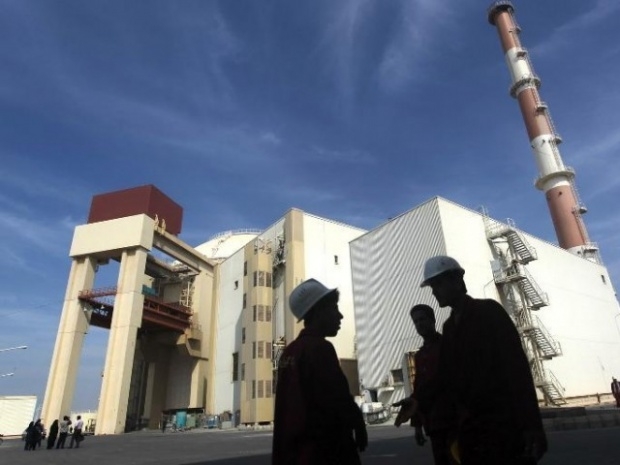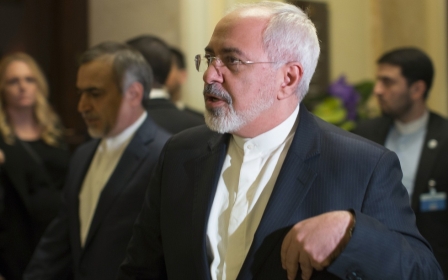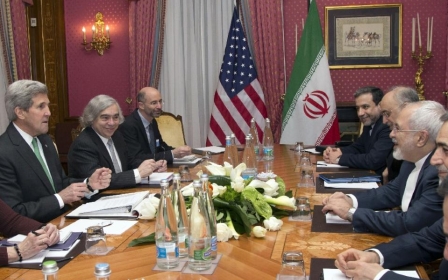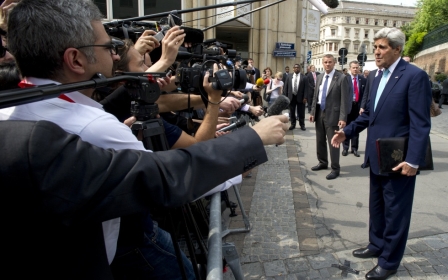US Senate won’t vote on nuclear Iran bill until after talks deadline

A US Senate committee will vote 14 April on a bipartisan measure requiring President Barack Obama to submit any international nuclear deal with Iran for congressional review, the legislation's authors said Thursday.
Senate Foreign Relations Committee chairman Bob Corker and top panel Democrat Robert Menendez agreed to push back a vote on the controversial bill until two weeks beyond the 31 March deadline negotiators set for the outlines of an accord between Iran and world powers.
According to Politico magazine, the push, several Senate sources said, is to prevent a veto-proof majority from building by heading off any fresh Democratic support for the plan and persuade supporters to keep their powder dry until the conclusion of multilateral negotiations with Iran. The bill would give Congress the ability to accept or reject any nuclear deal with Iran
"We have been working together very closely to ensure we have the strongest vote possible on the Iran Nuclear Agreement Review Act, and to achieve that result we have agreed to a markup of the bill...as soon as we return on Tuesday, April 14," the senators said in a statement.
Earlier this year, amid intense congressional debate over how to pressure Tehran toward a lasting deal that bars it from developing a bomb, a group of Democrats warned they would not vote in support of the bipartisan bill until after 24 March, to give the negotiations a chance to succeed.
The Corker-Menendez bill would require Obama to submit any deal between Iran and the so-called P5+1 - Britain, China, France, Russia, the United States and Germany - to Congress, which would have 60 days to review the accord and, if it so decided, to reject it.
The legislation is distinct from a new sanctions effort that would tighten economic penalties on Iran in the event an accord is not achieved or Tehran violates the deal.
Thursday's announcement virtually assures that Congress will take no vote regarding Iran's nuclear program until after the 31 March deadline.
White House chief of staff, Denis McDonough, had warned lawmakers bluntly in a Saturday night letter not to interfere before a tentative deal is reached this month and the final terms are inked in late June.
Obama's administration has warned that congressional action at the height of negotiations could infuriate Iran and provide it with an excuse to pull out of talks.
Nowruz message
Also Thursday, in his annual address to mark the Persian new year festival of Nowruz, Obama - in a video message - spoke directly to the Iranian people and their leaders.
"This year, we have the best opportunity in decades to pursue a different future between our countries," he said.
He did not give names, but Obama's Republican foes, allies Israel and Gulf countries - as well as hawks in Tehran - have all voiced opposition to an agreement.
"The days and weeks ahead will be critical. Our negotiations have made progress, but gaps remain," he said.
"And there are people, in both our countries and beyond, who oppose a diplomatic resolution.
"My message to you - the people of Iran - is that together we have to speak up for the future we seek."
Obama's video was subtitled in Farsi and included a direct appeal to Iran's large and youthful population, many of whom have known only antagonism between the United States and Iran.
Middle East Eye propose une couverture et une analyse indépendantes et incomparables du Moyen-Orient, de l’Afrique du Nord et d’autres régions du monde. Pour en savoir plus sur la reprise de ce contenu et les frais qui s’appliquent, veuillez remplir ce formulaire [en anglais]. Pour en savoir plus sur MEE, cliquez ici [en anglais].




